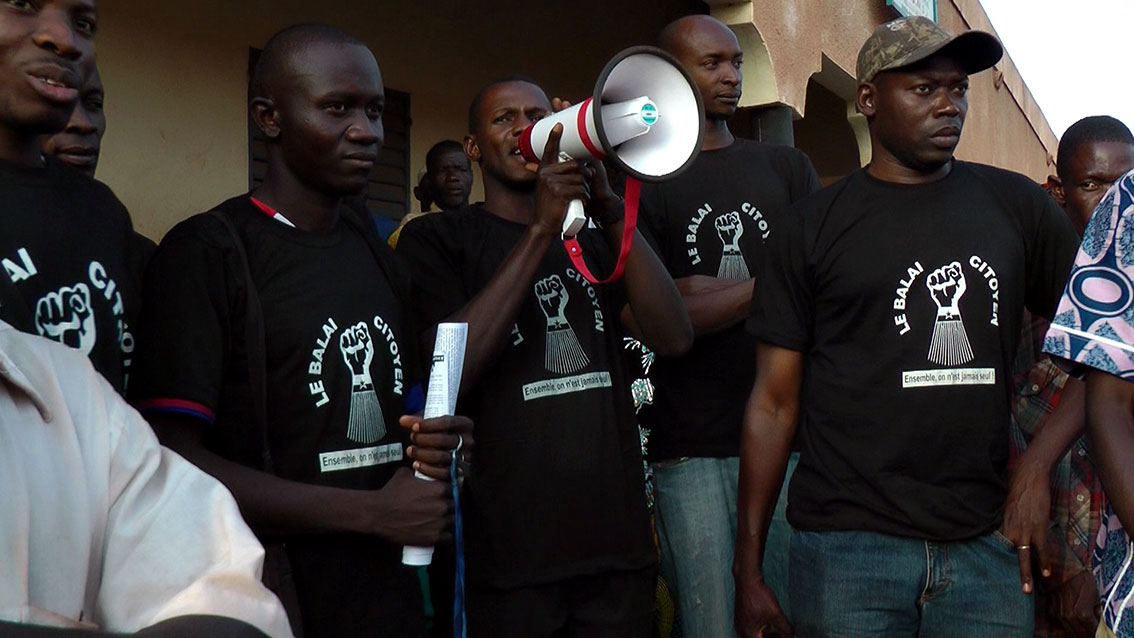Comment ça va? IV
— D’Après Godard
Saturday 27 May 2017, 6:30 — 10 pm

As the result of years long collaboration with curator Pascale Cassagnau, the CNAP and Le Fresnoy, LOOP presents the third edition of "Comment ça va? IV", a film programme dedicated to documentary and documented films. Taking place at the cinema Zumzeig, the programme proposes a selection of short and feature-length films by international artists, questioning filmic representation and narrative structures so to achieve a truthful image of reality and our everyday life.
The Comment ça va ? D’Après Godard film project-program, based on the eponymous film by Jean -Luc Godard, Comment ça va ? (1978) presents documentary and documented films, highlighting their capacity to cross history, to recover truth and reality, not as their ultimate goals, but rather, as tools, as reserves of forms, to undertake a journey, a trajectory, a path through complex political geographies.
In Comment ça va ? (1978, 70’), Jean –Luc Godard films a dialogue opposing a trade unionist and a left-wing activist on the subject of information processing and, specifically, on how two shots should be treated. The shots in question involve the Carnation Revolution, in Portugal, and a clash between strikers and riot police during a demonstration in France. The filmmaker described the genesis of this film, through a commentary delivered by a voice over, in the following terms: “This is the story of a guy who gets news from some other guy, who happens to be his father. And then this other guy talks to him about a woman with whom he had a thing going on at the office, a woman with whom he’s making a film showing how a Communist newspaper is made”. Not only does the film “expose” the full complexity of the ideological disagreements and tensions that divided the French left-wing movement, in doing so it also dissects the rhetorical dimension at work behind all information-writing activity through its montage and its movement, by deliberately placing the film, as the opening and closing credits put it, at the centre of the tension between two elements: “A film between the actor and the spectator, a film between activity and passivity”.
Here, the works of the Comment ça va? D’après Godard program express a number of shared hypotheses regarding both revisiting some of the topoi in modern art as well as work-creation and the possibility for narration. It is, in short, a series of films involved in reflecting on the present day.
Dowload the full curiatorial text here
Frédérique Lagny, “Djama Mourouti” ( La colère du peuple) , 2016,49′
Thirteen years after the Democratic and Popular Revolution led by Thomas Sankara in Burkina Faso, the film Djama Mourouty, which was shot in Bobo-Dioulasso, the second largest city in the nation, reminds us of the fall of Blaise Compaoré’s regime. The Burkinabé people, and particularly its youth, go into action forcefully, inventing new tools and slogans for the purpose of carrying out citizen protests.
Lech Kowalski, “I Pay for Your Story”, 2016, 86′
This film by Lech Kowalski is a journey to the present of a devastated America, showcased by the filmmaker as he revisits his childhood locations. Starting from the close unity of space of the neighbourhood — a few blocks — in which he spent his childhood and teenage years, upon his arrival to the United States after emigrating from Poland, the filmmaker films his former neighbours like so many portraits of social and human dereliction that are entirely absent in the sphere of the media and official representations of American society. Lech Kowalski uses the uniqueness of life stories to delve into the heart of the influence of institutions on destinies and the fundamental alienation that results from it.



